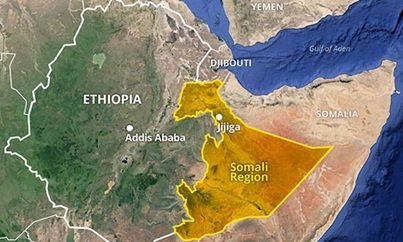By Hirsi Abdulkadir Mohamed; a former Ethiopian Federal Parliamentarian
In Ethiopia’s Somali Region, the promise of reform once sparked hope. People expected it to usher in transparency, accountability, and competent leadership. Instead, reform has become a hollow slogan, disguising a system that continues to prioritize personal loyalty and political connections over merit and public service.
What was meant to be a new era of governance has instead repackaged old habits with fresh rhetoric. Empty titles are handed out as political rewards, while skilled professionals are pushed aside. Leadership is dictated by clan affiliations and personal networks, rather than by the ability to serve the public effectively.
Rebranded Cronyism and Institutional Failure
Many believed reform would dismantle the entrenched networks of cronyism. Instead, it has simply rebranded them. The same powerful individuals have found ways to remain in control—not through competence or accountability, but through strategic alliances and political maneuvering.
Appointments to public office are still based on connections rather than qualifications. This has created a government structure that struggles to fulfill its most basic responsibilities. Talented individuals are sidelined, while unqualified officials are entrusted with critical decisions, leading to poor service delivery in healthcare, education, and infrastructure.
Corruption: The Engine of the System
Corruption is not just a flaw in the Somali Region’s governance—it is the system itself. Public resources, from government contracts to job opportunities, are distributed as political favors rather than allocated based on need or efficiency. Oversight mechanisms are weak, and those who attempt to expose wrongdoing often face retaliation rather than protection.
A glaring example of this institutional corruption is the Jigjiga Clean Water Project scandal. A recent investigation by The Reporter Ethiopia uncovered massive irregularities in the project, which was awarded to the China Civil Engineering Construction Corporation (CCECC) without a competitive bidding process. The project, meant to address severe water shortages, has been plagued by delays, the use of substandard materials, and unauthorized price hikes. The scandal illustrates how public funds are routinely mismanaged at the expense of ordinary citizens.
Nepotism: A Government of Family and Friends
If corruption is the foundation of the system, nepotism is its cement. Public offices are packed with unqualified relatives of political elites, turning institutions that should serve the people into personal enterprises. Instead of hiring professionals based on merit, the government has prioritized maintaining loyalty networks, further weakening already fragile institutions.
The result? A region where development is stagnant, and public trust in governance is eroded. Skilled professionals are discouraged from contributing because they see that talent and qualifications do not determine success—connections do. This not only prevents innovation but also deepens economic and social inequality.
The Consequences of a Broken System
The Somali Region’s governance crisis has devastating consequences. Basic public services remain unreliable, economic development is stifled, and political leadership is unresponsive to the needs of the people. The Ethiopian Policy Studies Institute (2021) has identified weak governance as one of the greatest obstacles to progress in the region, as unqualified officials lack the expertise to implement meaningful policies.
The continued culture of favoritism and incompetence has also widened the gap between the government and the people. As citizens see ineffective leaders maintaining their positions while competent individuals are ignored, frustration grows. If these governance failures persist, they will fuel deeper discontent, creating conditions for unrest and instability.
Breaking the Cycle: A Call for Real Reform
The Somali Region does not need more leaders who prioritize status over service. It needs a new generation of public servants who are committed to real progress. Reform must be more than just a reshuffling of political elites—it must be a fundamental restructuring of how governance operates.
To achieve meaningful change, the region must:
• End Political Favoritism: Government positions should be awarded based on qualifications and expertise, not clan ties or political loyalty.
• Enforce Anti-Corruption Measures: Strong oversight bodies must be empowered to hold officials accountable for the misuse of public resources.
• Depoliticize Public Institutions: Government agencies should function as service providers, not as tools for political gain.
• Promote Public Engagement: Citizens should have a greater role in governance decisions, ensuring leadership remains accountable and responsive.
Titles like “Honorable” and “Excellency” should be earned through service and impact—not handed out as political gifts. Until these fundamental changes are made, the Somali Region risks remaining trapped in a cycle where talent is ignored, resources are squandered, and the dream of good governance remains elusive.
Hirsi Abdulkadir Mohamed
Email: hirsineero@gmail.com
————
Hirsi is a former Ethiopian Federal Parliamentarian and Political Analyst Specializing in the Horn of Africa.
___________
Related articles:
Beyond Ethiopia’s Cash Cow: How Internal Betrayal is Destroying the Somali Region By Abdulfatah Hussein
Beyond the Official Narrative: Unpacking Governance Challenges in the Somali Region By Hassan Yusuf
Ethiopia’s cash cow: the kenni cabal draining the Somali Region By Muhumed H Kahin


Leave a Reply